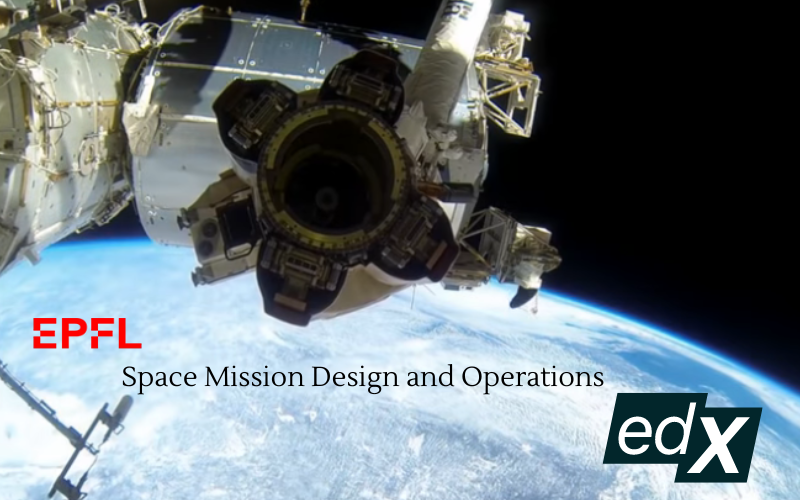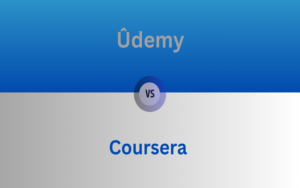Learn the concepts used in the design of space missions, manned or unmanned, and operations, based on the professional experience of the lecturer.
Embark on a cosmic journey with the EPFLx: Space Mission Design and Operations course offered through edX. This course is your gateway to understanding the fundamental laws of mechanics and orbital mechanics to the intricate design and operation of space missions. Whether you’re passionate about the physics governing the cosmos, the thrilling engineering behind spacecraft propulsion and architecture, or the strategic planning of orbital manoeuvres and mission objectives, this course covers it all. Dive deep into the challenges of the space environment, learn about the critical systems onboard a spacecraft, and discover what it takes to ensure mission success, especially in human spaceflight. Perfect for enthusiasts, students, and professionals alike, this course offers a comprehensive look at the cutting-edge field of space mission design. Join us in unlocking the secrets of the universe and paving the way for future explorations.
* 8 weeks – 2–4 hours per week
* Self-paced – Progress at your own speed
* Free Limited Access to course Material. Optional upgrade available. Why not try it out, to see if it is right for you.
Certification
Learners who successfully complete this IM course can earn a EPFL certificate.
EPFL is the Swiss Federal Institute of Technology in Lausanne. The past decade has seen EPFL ascend to the very top of European institutions of science and technology: it is ranked #1 in Europe in the field of engineering by the Times Higher Education (based on publications and citations), Leiden Rankings, and the Academic Ranking of World Universities.
What you will learn
Upon its completion, you’ll learn:
- Fundamental laws of mechanics and orbital mechanics
- Orbital maneuvers
- Types of space missions and their objectives
- Space environment
- General concepts of space vehicle architecture
- Propulsion
- Attitude determination and control
- Onboard systems
- Risk management and reliability
- Key design elements for successful missions, in particular related to human spaceflight
Modules
Unit 0 – Introduction to the Course
• Course objectives
• Motivation behind space exploration and utilisation
• The space pioneers, and brief history of human space exploration
• The main space agencies in the world
• Space utilisation and exploration
Unit 1 – Introduction to Space Environment
• Review of laws of mechanics
• Introduction to the space environment including the transition from the atmosphere to space, microgravity, the electrical and thermal environments, orbital lifetime, space debris and asteroids/comets collision threats
Unit 2 – Introduction to Orbital Mechanics (I and II)
• Orbital Mechanics I – dynamics of spaceflight; concept of gravitational well; orbital motion; Kepler’s Laws; the case of circular orbits
• Orbital Mechanics II – elliptical orbits; reference frames; orbital maneuvers; perturbations of orbital motion; peculiar orbits
Unit 3 – Orbital Mechanics Part III
• Rendezvous in Low Earth Orbit (LEO); relative motion of the chaser vs. the target. Strategy to successfully achieve a rendezvous in LEO
Unit 4 – Orbital Mechanics Part IV
• Interplanetary trajectories; Gravity Assist or Slingshot maneuvers
• Propulsion in space – law of propulsion; concept of specific impulse; types of thrusters; electric propulsion; ascent into space, and re-entry
Unit 5 – Introduction to Space Systems and Space Tethers
• Attitude measurement and control; attitude change; electrical power generation and distribution (overview); thermal balance (overview)
• Space tethers (or cables) as an alternate method to generate electrical power on orbit; Dynamic applications of space tethers, Shuttle-based tether missions
• Reliability; systems redundancy; risk management; safety design for space systems; human rating concept
Unit 6 – The Space Shuttle and the International Space Station (ISS)
• Space Shuttle – concept; design; operations; Challenger and Columbia accidents
• ISS; Soyuz and Progress; Logistic supply to ISS with ATV, HTV, and commercial vehicles
Unit 7 – Special Subjects on Human Spaceflight, and Future of Space Exploration
• Extravehicular Activity (EVA) and space suits, space robotics
• Astronaut training , commercial space , suborbital flights
• Orion and the Space Launch System (SLS)
• Future of Space Exploration and Conclusion




